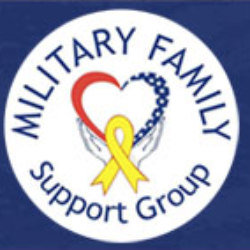Overview
If you are a local military family planning a local homecoming for a service member we want to know about it! Please contact us in advance to see how we may be able to help arrange an airport welcome committee including the Patriot Guard Riders, American Legion Riders and/or the Veterans of Foreign Wars. There may be other ways for us to help as well!
~~~~~~~~~~~
The anticipation of a service member returning from combat deployment can be a mixed bag of feelings. Families might experience a wide range of emotions from exhilaration to fear & anxiety.
Military personnel are deeply affected by their combat experiences. Most have normal reactions to abnormal situations & experiences. Because of this, adjustment difficulties are common. Understanding these possible difficulties is important.
Knowledge is empowering for military families!
Time can help a service member adjust to returning home and time can help families find their “new normal”. We say “new normal” because it’s important to remember that everyone has changed to some degree during a service member’s time away from home. Even if a family has welcomed a service member home before, every deployment — and every homecoming — is different. Everyone in a family, including a returning service member, needs to work at understanding and openly communicating about challenges that arise.
Some basic tips for re-connecting with your returning service member:
- Be available to talk — or not. Let your returning service member know it’s okay if he or she wants to talk — or does not want to talk — about the deployment. Many returning warriors feel more comfortable talking about their combat experiences with buddies from their unit.
- Remind your returning service member of his or her purpose in the family. Everyone in a family has a role and needs a sense of belonging. This is important to maintaining self-esteem, which helps prevent depression or any guilt feelings.
- Don’t coddle too much. Allow your returning service member to help you and other members of the family.
- Understand that your returning service member needs time. Returning home from a war zone is a tremendous adjustment for any service member. Be patient. For the vast majority, life back home starts to return to normal within a month.
Common stress reactions after a combat deployment:
Your returning service member may experience some of the reactions listed below*
Behavior Reactions
- Trouble concentrating
- Jumpy & easily startled
- Being on guard, always alert when thinking of the war
- Bad dreams or flashbacks
- Avoiding people or places related to the trauma
- Work or school problems
- Loss of intimacy or feeling withdrawn, detached and disconnected
Physical Reactions
- Feeling nervous or helpless
- Sad, guilty, rejected or abandoned
- Edginess, easily upset or annoyed
- Experiencing shock, numb, unable to feel happy
- Feeling hopeless about the future
- Irritable or angry
- Not trusting others, being overly controlling, lots of conflicts
*Adapted from information from www.mentalhealth.va.gov/mentalhealth.
If these reactions do not diminish within several weeks — or if they begin to worsen or cause serious problems for your family—encourage your service member to seek help for what might be Post Deployment Syndrome (PDS), Post Traumatic Stress Disorder (PTSD), etc.. There are many possibilities & combinations of possibilities that could be affecting your veteran. It is vitally important to find a professional who is willing to properly diagnose a suffering veteran – even if that means taking the time and energy to visit several doctors until finding the one who is best able to connect with the veteran. There are professionals who care – really care. The hard part is finding one for your returning service member – persistence is the key!
What to Expect From Children
Children’s reactions to a returning parent will differ according to their ages. Some normal reactions you can expect are:
Infants
-
- What you might see: Crying, fussing, or pulling away from the returning parent, clinging to you or the caregiver.
- What you can do: Be patient and give it some time. You will find that as the baby becomes accustomed to the returning service member being home, these behaviors will go away.
Toddlers
-
- What you might see: Shy, clingy, not recognizing the returning parent, crying, temper tantrums, returning to behaviors they had outgrown.
- What you can do: Just like with the infant, being patient and allowing the child to become used to the returning service member and having positive experiences will help. These behaviors will go away with time.
Pre-school age
-
- What you might see: Feeling guilty for what they think is “making the parent go away,” needing time to warm up to the returning parent, feeling angry, acting out to get attention, being demanding.
- What you can do: Being patient and allow time to run its course helps here, too. Set aside some special time to spend with the child individually. This can go a long way toward heading off difficult behavior.
School-age
-
- What you might see: Being excited, talking constantly to bring a parent up to date, bragging about the military parent, feeling guilty about not doing enough or “not being good enough”.
- What you can do: Allow your child to express feelings, perhaps through artwork. Set aside time for each child and be patient. Remember that allowing children to express themselves encourages self-esteem and builds communication skills.
Teenagers
-
- What you might see: Showing excitement, feeling guilty about not living up to standards, concerned about rules and responsibilities, feeling too old or not willing to change plans to meet or spend extended time with the returning parent.
- What you can do: Remember that teenagers emotions usually swing from one extreme to the other, and they often are not communicative. Encourage them to express their feelings and listen when they do. Teens might need extra time to re-adjust to having the parent home; remind them that you are there for them.
Take advantage of the many services the specific military branches provide for you and your family during this transition time. There is lots of information available online as well.
Knowledge is empowering for military families!
Adapted from the Naval Center for Combat & Operational Stress Control. www.nccosc.navy.mil.

